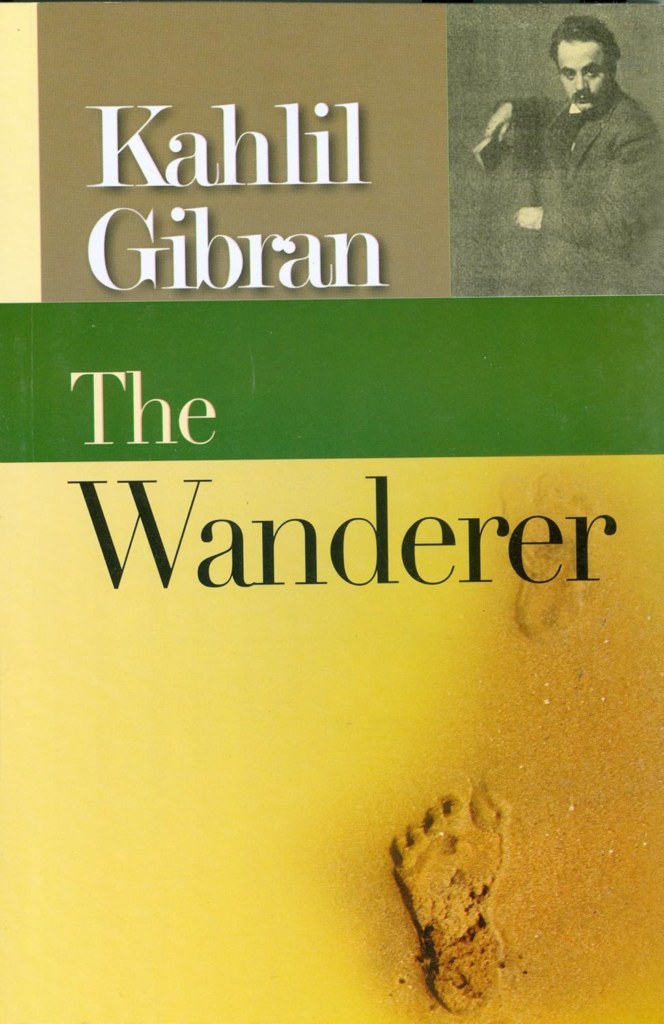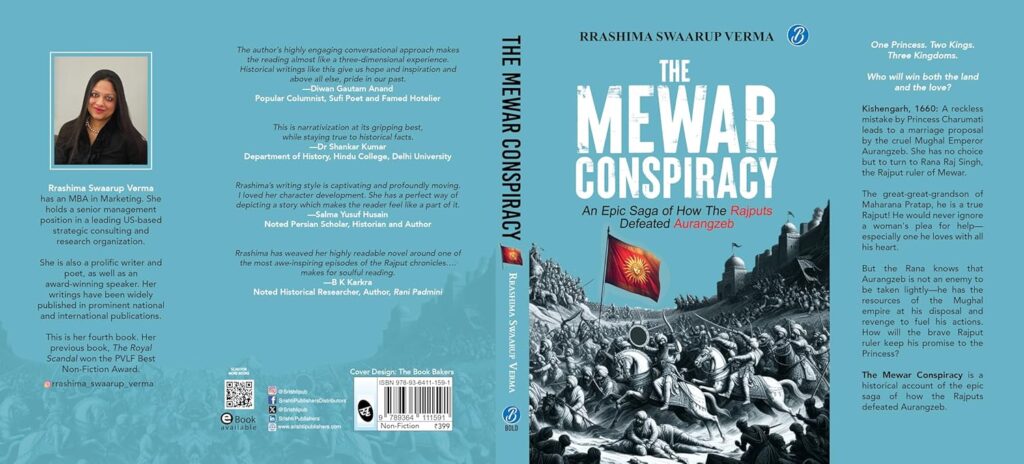The Wanderer is the last book written by Kahlil Gibran before his passing in 1931. It is considered one of his finest works alongside The Prophet. This book contains 51 short stories, or parables, that explore deep themes of life, love, kindness, and the passage of time. Each piece carries a unique charm and delivers timeless wisdom. Gibran’s mystical drawings add to the book’s appeal, making it a modern classic. His writing often reflects the struggles of human nature, and the difficulty people have in truly understanding one another, despite being deeply connected. The wordplay in The Wanderer is remarkable, making each sentence feel poetic and thought-provoking. This book invites readers to return to it again and again, each time discovering new meanings and perspectives.
Through its short yet profound stories, Gibran teaches lessons about human emotions, relationships, and wisdom. Many of the parables highlight the paradoxes of life how people long for love but struggle to express it, how they seek truth but fear it, and how they crave freedom but remain trapped in their own minds. His words gently push readers to look beyond the surface and find deeper meanings in everyday experiences.
Some memorable lessons from The Wanderer include:
- “If you reveal your secrets to the wind, you should not blame the wind for revealing them to the trees.” (A reminder to be careful with trust.)
- “The reality of the other person lies not in what he reveals to you, but in what he cannot reveal to you.” (A reflection on human depth and hidden emotions.)
- “Your friend is your needs answered.” (A beautiful way of defining true friendship.)
This book is not just a collection of stories but a source of wisdom that speaks to the soul.
The Wanderer by Kahlil Gibran is a profound collection of 51 parables and poems that delve into the complexities of human nature, spirituality, and the quest for self-understanding. As Gibran’s final work before his passing in 1931, it encapsulates his philosophical reflections and artistic vision.
Availability & Details of Book
The Wanderer by Kahlil Gibran was first published in 1932 as a collection of his final works. The latest edition was printed on 1 December 2018 by Rajpal and Sons. The Wanderer is a collection of parables and sayings, and it reflects on life, emotions, and human nature, offering wisdom in Gibran’s signature poetic style. This book is available in different formats, including paperback (110 pages) and Kindle edition, with prices of ₹64 for Kindle, ₹116 for paperback, and ₹14,929 for hardcover. It can be purchased from Amazon, Flipkart, and other online and offline bookstores. The Kindle edition is a budget-friendly and convenient choice, especially for those who prefer digital reading.
Kahlil Gibran: A Life of Art & Poetry
Kahlil Gibran, born Gibran Khalil Gibran on January 6, 1883, in Bsharri, Lebanon, was a Lebanese American writer, poet, and visual artist. He is best known for his 1923 book, The Prophet, a series of poetic essays that has been translated into more than 100 languages, making it one of the most translated books in history.
Gibran’s early life was marked by hardship. His father, a tax collector, was imprisoned for embezzlement, prompting his mother to emigrate with Gibran and his siblings to Boston in 1895. In Boston, Gibran was exposed to a diverse artistic community, which influenced his early interest in art and literature.

Kahlil Gibran studied at the College La Sagesse in Beirut, Lebanon, during his early years. After emigrating to the United States in 1895, he continued his education in Boston while also developing his artistic skills. In 1898, he returned to Lebanon to study at the Madrasat al-Hikma (School of Wisdom) in Beirut. Later, he moved to Paris in 1908 to study art at the Académie Julian, where he refined his painting techniques and interacted with influential artists and writers. His education in both the East and the West greatly shaped his literary and artistic works.
In 1898, Gibran returned to Lebanon to continue his education in Beirut, where he excelled in Arabic studies. Upon returning to Boston in 1903, he began publishing literary essays and gained recognition for his prose poems. A pivotal moment in his life was meeting Mary Haskell in 1907, who became his benefactor and lifelong supporter, enabling him to study art in Paris.
Settling in New York City in 1912, Gibran devoted himself to writing and painting. He passed away on April 10, 1931, leaving a lasting impact on literature and art. His works, influenced by religious themes and mysticism, often explored topics such as love, death, and nature. Despite facing challenges as an immigrant and experiencing personal losses, Gibran’s literary contributions have left a lasting impact, making him one of the best-selling poets of all time.
Themes in The Wanderer
- Self-Discovery and Inner Reflection: Gibran emphasizes the importance of introspection and understanding one’s inner self. Through various parables, he encourages readers to begin on a journey of self-exploration to uncover deeper truths about their existence. Example: In one parable, a man seeks wisdom from a hermit, only to realize that the answers he seeks lie within himself.
- Interconnectedness of Humanity: The narratives highlight the unity of human experiences, suggesting that all individuals are connected through shared emotions and struggles. Gibran portrays this interconnectedness as a fundamental aspect of the human condition. Example: A story describes how the joys and sorrows of one person can impact the lives of others, illustrating the profound impact individuals have on each other.
- The Duality of Human Nature: Gibran explores the coexistence of opposing traits within individuals, such as love and hate, joy and sorrow, and wisdom and folly. He delves into how these dualities shape human experiences and perceptions. Example: In a parable, he personifies Love and Sorrow, depicting them as inseparable companions that define the human experience.
- The Interplay of Beauty and Ugliness: Gibran examines the fluid boundaries between beauty and ugliness, suggesting that external appearances can be deceptive. In one parable, Beauty and Ugliness exchange garments after bathing in the sea, leading people to mistake one for the other. This narrative highlights the idea that true essence lies beyond superficial appearances.
- The Nature of Deception: Several stories in The Wanderer address the theme of deception, both of oneself and others. Gibran illustrates how individuals can be misled by appearances or false promises, urging readers to seek deeper truths and remain vigilant against self-deception.
- The Search for Truth: The so-called “Wanderer” symbolizes the eternal seeker, journeying through life in pursuit of wisdom and understanding. Gibran portrays this quest as a noble endeavour, emphasizing the importance of introspection and the continuous pursuit of knowledge.
- The Illusion of Possession: In some tales, Gibran challenges the notion of ownership, suggesting that material possessions and even personal relationships are transient. He encourages readers to embrace detachment and recognize the temporariness of worldly attachments.
- The Power of Silence: Gibran often highlights the significance of silence as a means of communication and understanding. He suggests that profound truths and connections can emerge in moments of quiet reflection, where words are insufficient.
The Wanderer serves as a timeless source of wisdom, offering readers profound insights into life, encouraging contemplation and self-discovery, love, and the human spirit. Gibran’s eloquent prose and evocative parables continue to inspire contemplation and self-reflection.
Notable Quotes from The Wanderer
- “A truth is to be known always, to be uttered sometimes.”
- “The significance of man is not in what he attains, but rather in what he longs to attain.”
- “Few of us are able to add fact to different fact and make a truth thereof.”
- “The human soul is like glass; it does not wound except when it is broken.”
These insights reflect Gibran’s ability to convey profound truths with simplicity and grace, making The Wanderer a cherished work for those seeking philosophical and spiritual enrichment.
Why You Should Buy and Read The Wanderer

Kahlil Gibran’s The Wanderer is a collection of short yet profound parables that explore human nature, emotions, and self-discovery. Each story carries layers of wisdom, making it a book that can be read multiple times, with new meanings emerging at different stages of life. Gibran’s poetic yet simple language makes deep philosophical ideas accessible to everyone. This book is perfect for those who enjoy thought-provoking literature that inspires introspection and personal growth. It is also a great choice for children, as its parables subtly teach moral values and instill a sense of spirituality from an early age. Whether you seek spiritual insight, a fresh perspective on life, or just a meaningful read, The Wanderer is a timeless book worth adding to your collection.
Final Thought
Through his simple yet profound storytelling, Gibran invites readers to see life from a new perspective, urging them to seek truth within themselves. This book does not dictate lessons but subtly guides the mind toward deeper understanding, making it a timeless read for anyone in search of meaning. Whether you are looking for inspiration, moral insight, or a moment of quiet contemplation, The Wanderer offers something valuable to every reader.




